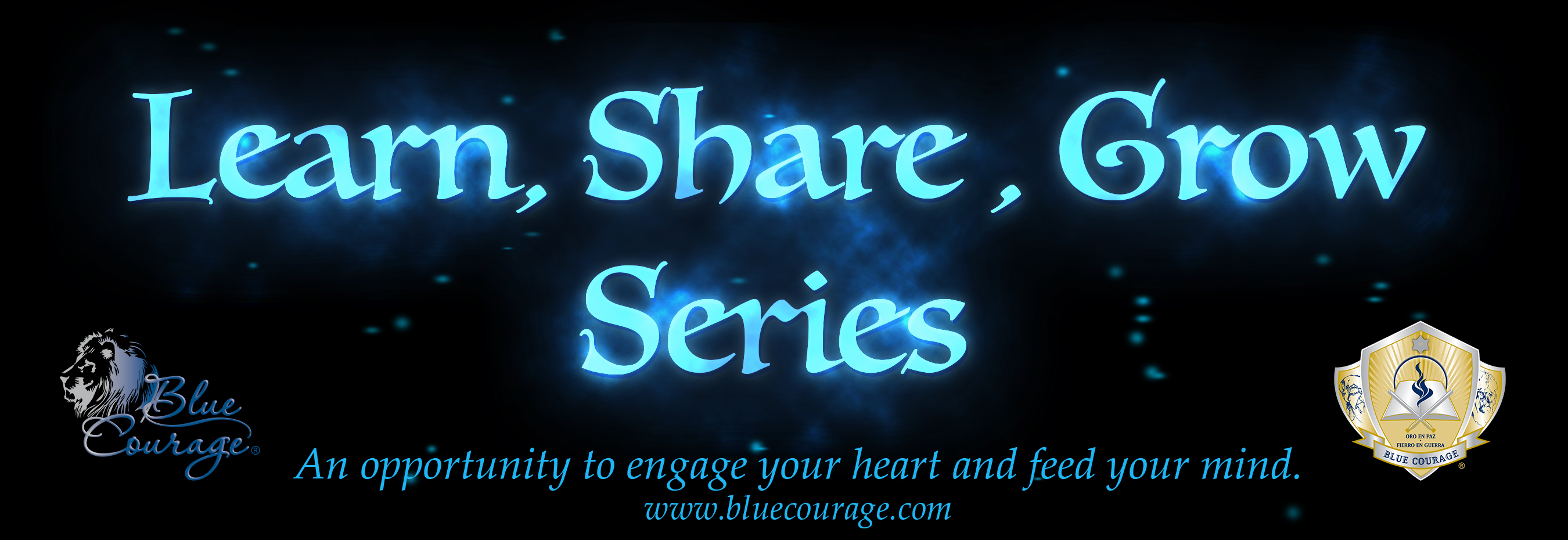Learn, Share, Grow - 5 Ways to Boost Resilience

Below is a lesson from Harvard Business Review on why building resilience is essential for thriving in today's stressful work environment, benefiting both individuals and organizations., as well as our key learnings.
The Blue Courage team is dedicated to continual learning and growth. We have adopted a concept from Simon Sinek’s Start With Why team called “Learn, Share, Grow”. We are constantly finding great articles, videos, and readings that have so much learning. As we learn new and great things, this new knowledge should be shared for everyone to then grow from.
5 Ways to Boost Your Resilience at Work
by Rich Fernandez
Currently, a quarter of all employees view their jobs as the number one stressor in their lives, according to the Centers for Disease Control and Prevention. The World Health Organization describes stress as the “global health epidemic of the 21st century.” Many of us now work in constantly connected, always-on, highly demanding work cultures where stress and the risk of burnout are widespread. Since the pace and intensity of contemporary work culture are not likely to change, it’s more important than ever to build resilience skills to effectively navigate your worklife.
While working as a director of learning and organization development at Google, eBay and J.P. Morgan Chase, and in my current work as co-founder of the learning solutions company Wisdom Labs, I’ve seen over and over again that the most resilient individuals and teams aren’t the ones that don’t fail, but rather the ones that fail, learn and thrive because of it. Being challenged — sometimes severely — is part of what activates resilience as a skill set.
Continue Reading Here.
Key Learnings:
Stress and Burnout are Rampant: The contemporary work environment is highly demanding and stressful, leading to rising levels of employee stress and burnout.Resilience is Essential: Building resilience skills is crucial for navigating the challenges of modern work and maintaining well-being.Resilience is Learnable: Resilience is not an innate trait but a set of attitudes, behaviors, and social supports that can be cultivated.Five Key Strategies for Building Resilience: Mindfulness: Practicing mindfulness can improve judgment accuracy, problem-solving, cognitive flexibility, and job performance while decreasing stress and enhancing well-being.Compartmentalize Cognitive Load: Deliberately focus on specific tasks (emailing, strategy, meetings) at dedicated times to avoid context switching and reduce cognitive strain.Take Detachment Breaks: Step away from work periodically (every 90-120 minutes) to reset energy and attention, preserving energy and preventing burnout.Develop Mental Agility: Practice "decentering" stressors by observing them neutrally, labeling emotions, and shifting perspectives to manage them effectively.Cultivate Compassion: Foster self-compassion and compassion for others to increase positive emotions, improve work relationships, increase cooperation, and reduce stress.
Resilience Benefits Individuals and Organizations: Developing a resilient workforce leads to lower healthcare costs, higher productivity, reduced absenteeism, and decreased turnover.
Stay connected with news and updates!
Join our mailing list to receive the latest news and updates from our team.
Don't worry, your information will not be shared.
We hate SPAM. We will never sell your information, for any reason.

